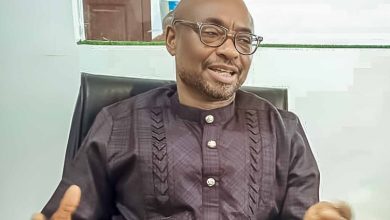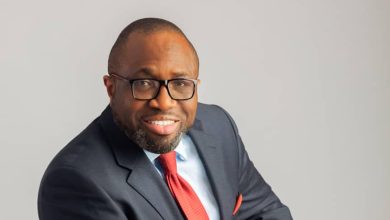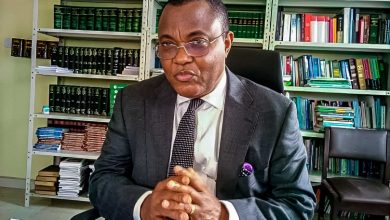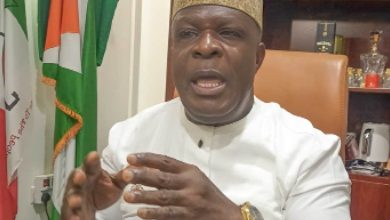Nigeria’s Democracy May Crash Soon
…As Politicians Pursue Personal Over National Interest – Prof Okon Ansa
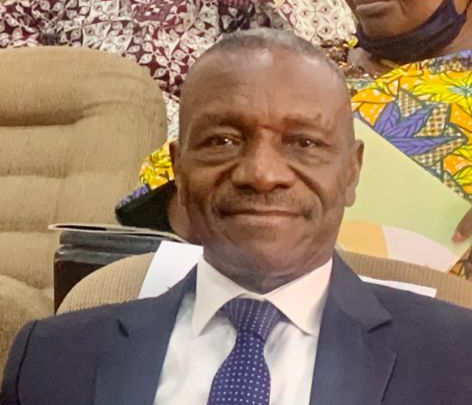
Prof Okon Asuquo Ansa, suave and shrewd, is a distinctive academic with landmarks in various spheres of life.
A former deputy vice chancellor, University of Uyo; commissioner for Agriculture and Natural Resources, Commissioner for Commerce and Tourism, Akwa Ibom State; Chairman, Ibom Power Company; a director, United Africa Company (UAC) Property Development Company; Member, Akwa Ibom Investment and Industrial Promotion Council:, among others. Prof Ansa, an agriculturist, is a well-respected plant virologist in Nigeria and beyond.
He was made an Officer of the Order of the Federal Republic (OFR) in 2005, and has traversed several institutions including Ahmadu Bello University, Zaria, University of Calabar, University of Uyo, University of California among others.
In this interview, he deploys his experience and know-how to dissect various issues in the polity – threats to democracy and food sufficiency, lingering crisis in the university system-and warns that care must be taken to safeguard Nigeria’s democracy from crashing.
Excerpts:
Could you recall how you started your public service career?
I came to Akwa Ibom State Government in February 1990 from the university. At that time, I was in Ahmadu Bello University, Zaria, and because of the incessant religious crises, I moved to Calabar towards the end of 1989. Just as I was settling down, the Akwa Ibom State Government invited me to join as commissioner for agriculture in February 1990. However, before my actual assumption of duty, I was earlier invited from Calabar to see the governor. At that time, they had problem with cassava and prices of garri went up and that was because there was this cassava disease called the “jerry curl”, for lack of a better name. It was actually called “jerry curl” because of the way the leaves were twisted and their colour changed.
They invited me to see the governor and he told me about the cassava disease which had brought hunger in the land and expressed his belief that I could solve the problem. I told him that I knew what the problem was and could handle it on the condition that I would be the one taking decisions and he accepted the proposals. I thought they would invite me as a consultant to address the situation but shortly after that, I was announced as commissioner for agriculture and I moved down to Uyo to start work.
My first job really then in Akwa Ibom was to resolve the food crisis. Cassava yield had become very low and the governor gave a marching order to address the problem. He asked for a blueprint which I took to the then State Executive Council on how to resolve the problem. I made it clear to them that the problem was a viral one without cure, and that the only solution was to change the variety of cassava stems we were planting, bring in new cassava stems from outside the state that were resistant to the disease and distribute them to the farmers. To do that effectively, we had to establish an extension system. Akwa Ibom was still settling down from being created out of the old Cross River State and it was a tall order. We didn’t have Akwa Ibom Agricultural Development Programme (AKADEP) as we have now. I had to create an agricultural system for the state and create an extension system. I created AKADEP and an extension system for the entire state. I created about 600 extension systems. Every 10 villages had an extension cell with headquarters. We delivered all the materials needed to use to the cell headquarters for farmers to access.
You can’t stay in Uyo to address farmers’ challenges because only very few farmers would respond from their villages if you call them out to Uyo. But if you take it close to them making it convenient for them, they’ll go for it. Otherwise they will find cheaper alternative(s).
I had to liaise with not just the World Bank to set up structures for the state but with the International Institute for Tropical Agriculture [IITA] in Ibadan to access the improved cassava varieties we used in the state.
I also used the media to enlighten the farmers to accept the new variety of cassava stems and discard the diseased ones. I started working with then Gov. Abbe and Air Commodore Idongesit Nkanga later took over and we continued working and by the end of 1991, garri came down to 10 cups at one naira because everybody was involved and it was a massive operation. On top of that, we started what is today known as second planting season. I said to the people of the state that I lived in the North, Zaria precisely, where the rain would start sometimes in late June and by September stopped but down here, we have rain virtually the entire year and we can no longer waste it and hence have to start planting twice a year.
That was how we started the second planting season in Akwa Ibom State. Again, the job of government is not to produce but to create the enabling environment for individuals to do it. To provide the people the wherewithal to do it and when they have the tools they will do better. While in office then, we negotiated the loan for Akwa Palm with the World Bank and when Akpan Isemin came, he had to access the loan and set up the palm plantations in the state. The team that I worked with which served between the duo of Abbe and Nkanga was one of the most vibrant government teams that Akwa Ibom has ever had. Many of the projects you see today in the state were done during the period. Today when I watch what is going on in government, I keep wondering if it is the same government I served in as commissioner. Then I was always in the office by 7:30 in the morning. The official driver always reported by 7:00am to my residence with an official car from the pool and dropped me at the office and by evening after work, he would bring me back home and returned the official car which was a 504 Peugeot back to the car pool.That was how government operated then. A lot has changed so profoundly. When I finished my stint as commissioner, I returned to the University of Calabar but because my family had settled here, I transferred to the University of Uyo.
In-between I was involved in several other things. When General Sani Abacha was in power, we set up a group known as Akwa Ibom Front on National Issues and we were one of the first groups in the South-South to advocate the six regional structures, among other things.
Thirty-four years after creation of the state, are you worried that Akwa Ibom still depends on neighbouring states and the North for staple food produce?
There is no question about it. I used to tell our people that no group of people can say that they are independent or successful if they cannot feed themselves. The reason America is strong is not just because of their weapons alone but because they can feed not just themselves but even Russia that is an arm competitor with them. Therefore, my drive then was for Akwa Ibom to become self-sufficient in food production. We had almost reached there with production of garri and even beans which people never believed it can grow here.
My drive then was that in a few years, a lot of what we were importing from other states would stop. It hurts to sit here and be hearing of ‘Atam garri’ and ‘Bendel garri’ in our markets. We have no reason to be food-dependent on other people. To stop that from continuing, government must create the enabling environment for farmers to thrive. It takes sincerity, commitment not political talk.
Related: A’Ibom Govt To Embark On 500-Hectare Commercial Farming In LGAs
The truth of the matter is that the farmers know what to do but lack money and extension experts to guide them. The North is very good at agriculture because they have good extension system. They have excellent agricultural development mechanism. Their extension system is very good and they place a lot of emphasis on food production. Akwa Ibom is one of the most vulnerable states when it comes to food sufficiency and the way Nigeria is going, anything can happen any time and how do we survive food wise? Is the government aware of how vulnerable we are as a people?
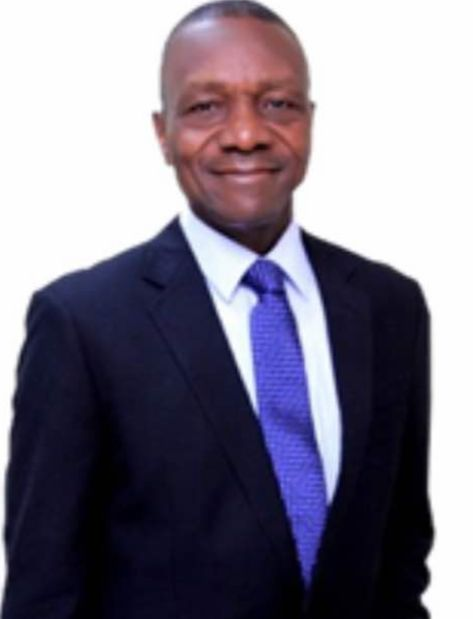
Where do you see the future of the country food wise with massive and persistent insecurity in some parts of the North?
Years back it was believed that tomatoes only grow in the North but recently more and more states in the South are producing tomatoes. We will get to the point soon when those produce we thought could grow well in the North alone will be mass produced here in the South. In Anambra State, there is somebody I know that is into massive tomatoes production. In Akwa Ibom, there are several people who are into tomatoes production, even though they make their mistakes but they are learning also.
The northern Nigeria is in trouble, the area depends on large number of farmers to produce the large quantum of food Nigerians are consuming and most of those farmers can no longer go to the farms due to insecurity. It is virtually affecting every part of northern Nigeria.
Related: Ibom Integrated Farms—Unique in Many Ways
If the insurgency is not soon put under control, we will soon have food deficit. For the South, and a place like Akwa Ibom, it presents a big opportunity to excel in agriculture. What is it that is being produced by the North that we cannot produce here?
It also presents an opportunity for researchers in the South to start to look inwards for the variety of these crops that can adapt to our environment. Already, a lot of tomatoes there now grow under our tropical rain conditions. They have theirs grown under irrigation but here we have rain, rain and rain. We must have tomatoes that are adapted to rain and there are lots of them now. The inability of the farmers in the North is to produce at full capacity owing to insurgency is a big opportunity for a state like Akwa Ibom to excel in farming those produce. It is sad that a state like ours still depends on outsiders in virtually every type of food our people eat. It is time for us to be honest with our food deficit situation, face it and do something about it.
What is your advice to the government on the matter?
My advice is very simple. A farmer who grows food needs fertilizer to help him. How many Akwa Ibom farmers for instance have access to fertilizer to use when they need to use it?
Related: OCP Africa Arrives Akwa Ibom For $1.4bn Fertilizer Plant Project
Secondly, do we have a functional extension service as we speak? Does a farmer in Oku Iboku for instance who produces maize have the variety of seeds that will give him the needed yield he desires? In the state, army worms have wreaked havoc on maize production in the last few years and the yields have been poor. The solution has been there for the past years but for the farmers to be aware, there must be adequate information and that is where the government comes in. Government must guide them and that is what the extension people do. But here in the state, I discovered the place is in coma. We need a strong extension system to help farmers who are producing the food. We must talk to the farmers, give them what they need and guide them.
When the farmer finishes producing food, we need to put up a system that allows him make money from what he has produced. If he produces and there is no patronage, or he is forced to sell below cost price because they are perishable goods, he will be discouraged to continue next season or his level of investment will drop considerably. When that happens to many farmers, what we get is lower level of food production. For us to increase food production, we need to intervene as a government by setting up proper extension system and one that aids farmers access to get what they need to do their work. It is sad that Akwa Ibom even imports vegetables like ugwu, when it takes nothing to grow it even in our backyards. There is also terrible movement of people from rural to urban centres, leaving behind fewer farmers to feed the growing urban population. To feed the urban population, you have to take care of the farmers.
To get self-sufficient in food production, we must return to the basics and work with the farmers, and government should not create the impression that it can produce food. How many people can the government-grown food feed? Or how many acres of the land can they cultivate?
Are you impressed with the Central Bank of Nigeria’s (CBN) assistance towards food sufficiency in the country and assistance to farmers?
Right now, CBN has two sets of interventions – the Agricultural Credit Guarantee Scheme and Anchor Borrowers Scheme. I have interacted with both schemes. Anchor Borrowers Scheme needs an anchor that is almost a guarantor for group of farmers whom the bank lends money. The essence of the anchor is to know who to hold responsible when there is a default in the repayment of loans given to farmers.
In the northern parts of the country, the government accepts to be the anchor for the farmers and encourages them to take the loans for farming. Over here, unless our government is ready to play that role, it will be difficult for Anchor Borrowers’ Scheme to work. For the programme to succeed in the South there must be government involvement to serve as guarantor for the farmers. We know that a few may default in repaying but the fear of the few should not hinder the opportunity to change the landscape of food production in the land. The government can also put up mechanism to handle the few defaulters.
In areas like Ini Local Government Area of the state and others, we have large acres of lands. Can’t government acquire the lands and group farmers into cooporatives to access such funds from CBN?
Why will government get involved in acquiring lands? My take is that you remove government from such things, if government acquires lands sooner or later, you will have government officials who will exercise interest that will be detrimental to the project.
The role government is expected to play is creating an enabling environment for people to do their thing. Let people own their lands because once it is acquired by government, officials will abuse the system by exercising authority in a manner that will create problems. If Ini is good in rice production, all government is expected to do is to have dialogue with farmers there and give them all support and encouragement to help boost food production. If the lands belong to government, your little misunderstanding with a director in government ministry will see you being kicked out of the area.
What is your view on the general situation of Nigeria vis a vis the insecurity, bad economy etc?
I’m really worried. I don’t know how much longer we can continue like this. The truth is that the country has changed so drastically in the last few years and insecurity is at the peak. Nigerians are scared of travelling by road from one location to another even within the states. Beyond the bandits and killer herdsmen, we now have copy cats who are in the menace because others got away with it and they are also getting away with it. Clearly the country has deteriorated. I was one of those who thought the reputation the President came with will make a difference; I don’t know what went wrong but those expectations have not been met.
Read Also: Stemming The Growing Insecurity In Nigeria
My biggest worry is the army of unemployed people in the country. The last time the Bureau of Statistics issued its report, the unemployment rate went in excess of 33 per cent; which means that one in every three Nigerians is not employed and it is pretty dangerous and also fuelling insecurity. People cannot be hungry for so long before they will find a way to help themselves positively or negatively.
The other problem with Nigeria is very intense religious and ethnic divides and that will destroy the complex country faster. And it has reached the zenith in the last few years. I pray that common sense prevails among Nigerians because I don’t see us surviving another round of religious crisis. I expect our leaders to do everything in their power to pull the country away from where we are presently.
What is your take on the persistent instability within the university system with incessant ASUU strikes?
I started working in the university when none of these issues existed. When I started as a graduate assistant, we had only five universities in the country – in Ibadan, Lagos, Benin, Zaria and Nsukka.
Then the universities would retain two or three of their best graduating students and train them to give back to the society through the institution and that was how we got into the system. I didn’t apply to start working in the university but was rather invited after my National Youth Service to come and lecture. While working as a graduate assistant, within a week of my arrival, I was given a two-bedroom flat. Shortly after that, I was given a cheque to buy a car within three weeks I started work as a graduate assistant. My salary as a graduate assistant was bigger than the salary of those working in oil firms. The university staff had the highest salary in the country then, before the Udoji Awards came and everything crashed. The university had their own environment then as people lived and did everything within the university. Today, things have changed a lot. Look at the University of Uyo for instance, no accommodation for the staff and not enough hostels for the students. The university culture has eroded. It was common in the earlier mentioned five universities but the Federal Government by opening more universities and acquiring unity schools gave them more than they could handle and funding became a big problem. There is explosion in terms of students’ population and university demands while the capacity to fund them has diminished tremendously. Therefore, we do have a situation where the lecturers are poorly numerated, they come a full circle from being the best paid to now become the worst poorly paid even within the government sector. So, discontent has set in, plus the fact that they raised issues about the facilities in the campuses and quality of the education they are supposed to offer students.
These are things government is supposed to handle but hardly acts and when it promises to do so, it never keeps the promise. We never had active unions in the universities like what we have today until General Yakubu Gowon sacked professors in Ibadan and other places and pushed them out of campuses. The university lecturers woke up to realize that they were not insulted from politics and government actions, before they thought they were insulted and never bothered about even building their own houses but make do with living on campuses even after retirement. In Ibadan for instance, you could still see several former vice chancellors even when I was still a student all living together inside the campus and still mingling together.
That was the situation until struck by government. Things have since changed drastically. Lecturers now search for themselves places to stay and their salaries cannot take care of their needs.
The system has changed so drastically that as a lecturer, I don’t even have a conducive place to stand and teach in the university.
As a plant pathologist, I cannot teach my students by just talking and getting them to imagine. I have to project it on the screen and also take them to the field and unfortunately the facilities to do that are just not there. It is the same in engineering, medicine and others.
Government only pays lip services to agreement and when there is strike, it will honour part of the last one. Part of the problem is the large number of universities but it should be able to fund what it owns. There is no point having universities they cannot fund. Again, the tuition fees in government universities are very low and the highest, perhaps, students pay is less than N70,000 a year.
That on its own is problematic. It is cheaper than a private nursery and primary school in the country. Facilities in Nigerian universities are very poor. It is a big problem.
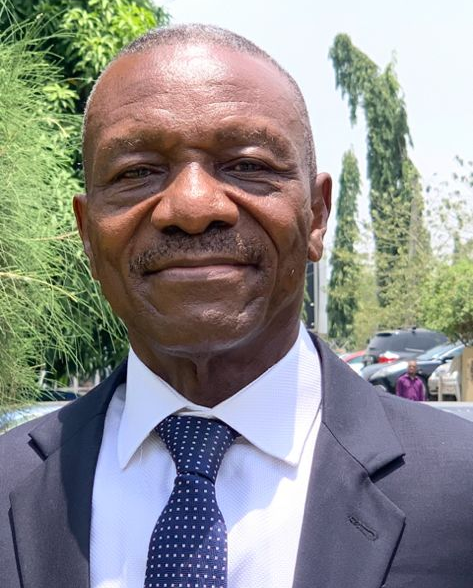
How active have you been in politics and what is your take on the activities of the incumbent administration in the state in the last six years?
When Obong Victor Attah was the governor of the state, I was actively involved in politics. I was head of the team that built the Ibom Power. I was part of Akwa Ibom Investment and Industrial Promotion Council (AKIIPOC) that executed several laudable projects in the state including the Victor Attah Airport and others. During Chief Godswill Akpabio’s era, I didn’t participate at all because I felt I had played my role and should let others make their own contributions. I stepped aside and faced my job at the university.
But with incumbent Governor Emmanuel, I have shown much interest again in politics because it is clear that you can’t make much difference standing on the sidelines and be complaining if you don’t have the quality of governance you anticipated. So I do complain and raise issues with my local government council chairman etc.
My worry presently about my state is whether they are following the situation in the country. Western Nigeria saw it coming and they set up Amotekun. They had issues with the Federal Government setting it up but they insisted on having it. They are always handy to define what the Yorubas want as a people.
The Igbos for instance, you may not agree with the Indigenous People of Biafra (IPOB) or Eastern Security Network, but it points to a people defining what they want. They have the Ohaneze and you hear people saying that they have been marginalised and the consciousness is there. Where is the consciousness in our own people? That is the first thing that strikes me with the way the country is drifting. If it scatters tomorrow, what happens to us? Do we have a leader? Do we have a position? Have we defined our position within the context of this country as it were today?
Read Also: Akwa Ibom Council of Chiefs, State Police Command Brainstorm For Enhanced Security
Governance is beyond playing politics and political parties and executing projects. As a people where are we going? What is our position and conviction? I have not seen that. See what Governor Nyesom Wike of Rivers State started on value added tax (VAT), it will go beyond that as restructuring may have been put in motion and people are beginning to ask questions. Things are cropping up; people are defining their position as a people and that is the kind of things I am talking about. The country is moving the way nobody anticipated and you must protect the interest of your people. There are several things we should address as a people because we are a small minority. I don’t discuss party politics of PDP and APC because they are the same people. If we have a goal as a people, no matter the party in power, we will still move in unity to achieve our goal.
The people of your federal constituency are agitating for 2023 governorship of the state to be zoned to the area. Are you apolitical on their agitation?
I cannot be apolitical to the agitation. I will want the governor to come from my federal constituency which is Itu/Ibiono Ibom Federal Constituency. I believe in it and I think we deserve to have it.
What are your reasons?
I will give you one or two reasons and you don’t have to agree with them. Today as we speak, there is no good road in my area in Itu.
Have you tried to access my local government headquarters? I am from Oku Iboku in Itu and before now, it took only 20 minutes from Uyo to my village but presently, the road leading to my village now takes over one hour to drive on because it is so bad and it is like that in almost every part of Itu. No part of Itu can claim to see serious development and it is not fair. People complain because there is inequality in governance. If there is equality and things are done fairly, I don’t care where the governor comes from, knowing full well that what belongs to us will always come to us. Today I have come down from my high horse and said to myself, if you have a candidate from your area that is ready to be governor, support him to be governor so that he will remember that part of the state exists. I am one of those that wish that the next governor of my state comes from my federal constituency.
Read Also: A’Ibom Governor 2023: Why It Should Be Itu/Ibiono Ibom, And What Will Happen If Not
You served under a military regime. Comparatively how will you rate the situation of governance then and now that we have democracy?
Some of the major developments you are seeing today happened under the military. They have an advantage but I am not advocating for military regime. I don’t want it for several reasons but decision making under the military is always swift and straight. Once decision is taken under military, it’s straight to implementation. What we have now as democracy are people pursuing personal interest left, right and centre. And to be honest, democracy will crash sooner than later. When you hear a politician shouting on top of his voice, it is personal interest. What he is fighting for is to the detriment of people that elected him to power.
Today people that elected those in power have no access to them and the opulence they live hardly reflect the massive poverty in the society. We have to look at democracy in the context of where we are. Otherwise it will amount to having so many years of democracy and it ends in chaos. If the democracy is not harnessed to the advantage of the people, it will be a matter of time before it crashes.

